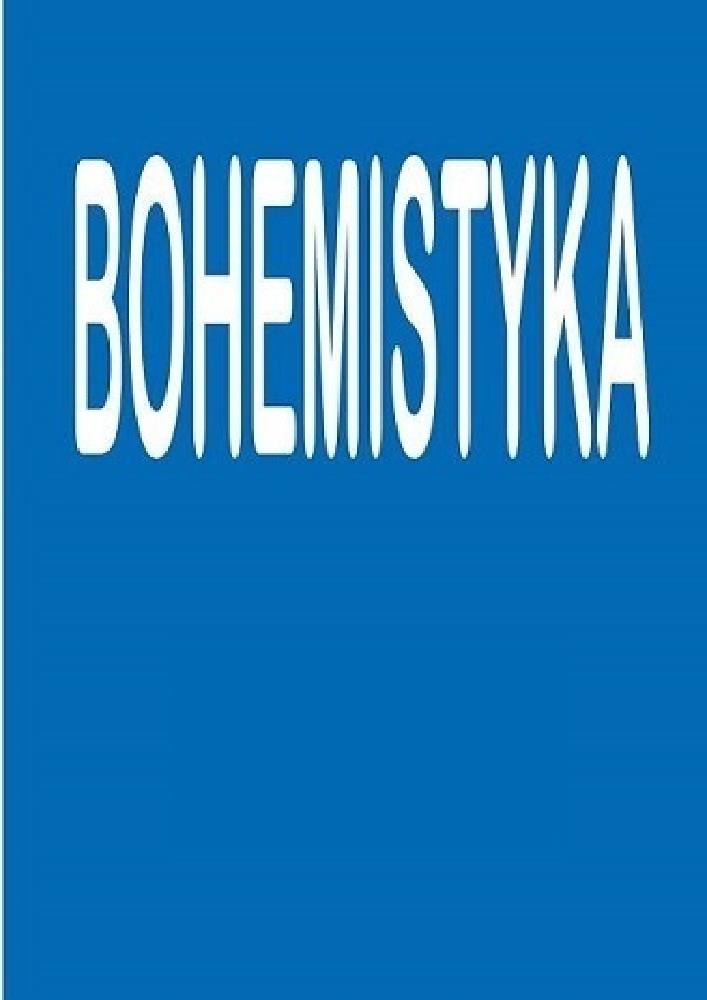Abstrakt
The aim of the paper is to reconstruct the Central European idea in Milan Kundera’s work. The study analyses key works for the Central European category: The Book of Laughter and Forgetting and The Stolen West or The Tragedy of Central Europe. This text is an attempt to create the Kundera’s dictionary of Central Europe, and therefore it addresses such categories as fate and fate, memory and forgetfulness, scapegoat theory and the metaphorical death of the novel. The article highlights the key role of culture as a matter of Central European identity in opposition to the dominant historical-political discourse.
Finansowanie
Tekst powstał w ramach stypendium Józef Tischner Junior Visitting Fellows - hip w Instytucie Nauk o Człowieku w Wiedniu [Institute for Human Sciences in Vienna].
Bibliografia
Donskis L., 2012, I Remember, therefore I Am: Milan Kundera and the Idea of Central Europe [in:] Yet another Europe after 1984. Rethinking Milan Kundera and the idea of Central Europe, ed. L. Donskis, Amsterdam: Brill, Rodopi.
IV. Sjezd Svazu československých spisovatelů, 1968a, Praha: Československý spisovatel.
Girard R., 1987, Kozioł ofiarny, tłum. M. Goszczyńska, Łódź: Wydawnictwo Łódzkie, wydanie elektroniczne.
Havel V., 1969, Český los? Online: https://is.muni.cz/el/1423/jaro2011/SOC403/um/Cesky_udel.pdf [dostęp: 25.09.2020].
Havel V., 2011, Siła bezsilnych, tłum. A. Holland, [w:] idem, Siła bezsilnych i inne eseje, wyb. A. S. Jagodziński, Warszawa: Agora.
Jagodziński A., Milan Kundera w polemikach, [w:] Kundera. Materiały z sympozjum zorganizowanego w Katowicach w dniach 25–26 kwietnia 1986 r., red. J. Illg, Londyn 1988, s. 21–29.
Judt T., 1990, The Rediscovery of Central Europe, Dedalus, nr 119, ss. 23–54.
Judt T., Snyder T., 2019, Rozważania o wieku XX, tłum. P. Marczewski, Poznań: Rebis.
Kantůrková E., 1985, Dějina, dějiny, dějinnost, Listy, nr 5, ss. 19–22.
Kola A. F., 2011, Europa w dyskursie polskim, czeskim i chorwackim. Rekonfiguracje krytyczne, Toruń: Wydawnictwo Naukowe Uniwersytetu Mikołaja Kopernika.
Kundera M., 1968, Český úděl? Online: https://is.muni.cz/el/1423/jaro2011/SOC403/um/Cesky_udel.pdf [dostęp: 25.09.2020].
Kundera M., 1969, Radikalismus a exhibicionismus. Online: https://is.muni.cz/el/1423/jaro2011/SOC403/um/Cesky_udel.pdf [dostęp: 25.09.2020].
Kundera M., 1984, Zachód porwany albo tragedia Europy Środkowej, Zeszyty Literackie, nr 5.
Kundera M., 1993, Three Contexts of Art: From Nation to World, Cross Currents, vol. 12, s. 5–14.
Kundera M., 2013, Księga śmiechu i zapomnienia, tłum. A. S. Jagodziński, P. Godlewski, Warszawa: W.A.B.
Kundera M., 2015a, Zdradzone testamenty, tłum. M. Bieńczyk, Warszawa: W.A.B.
Kundera M., 2016b, Sztuka powieści, tłum. M. Bieńczyk, Warszawa: W.A.B.
Kundera. Materiały z sympozjum zorganizowanego w Katowicach w dniach 25–26 kwietnia 1986 r., red. J. Illg, Londyn 1988.
Masaryk T. G., 1969, Česká otázka. Snahy a tužby národního obrození, Praha: Melantrich.
Schauer H. G., 1917, Spisy, Praga: Kamilla Neumannová.
Schöpflin G., 2012, Central Europe: Kundera, Incompleteness, and Lack of Agency, [in:] Yet Another Europe After 1984: Rethinking Milan Kundera and the Idea of Central Europe, ed. L. Donskins, Amsterdam: Brill, Rodopi.
Shore M., 2012a, Nowoczesność jako źródło cierpień, tłum. M. Sutowski, Warszawa: Wydawnictwo Krytyki Politycznej.
Shore M., 2012b, Smak popiołów. O dziedzictwie totalitaryzmu w Europie Wschodniej, tłum. M. Szuster, Warszawa: Świat Książki.
„Svědectví” 1985, nr 74. Online: http://scriptum.cz/cs/periodika/svedectvi [dostęp: 08.10.2020].
Šimečka M., 2008, The Owner of the Key, „Respekt”. Online: https://www.respekt.cz/respekt-in-english/the-owner-of-the-key [dostęp: 10.11.2020].
Třešňák P., Hradilek A., 2008, Udání Milana Kundery. Online: https://www.respekt.cz/tydenik/2008/42/udani-milana-kundery [dostęp: 10.11.2020].
Zawisza R., 2016, Bez końca z Girardem, i tak aż do końca świata… Online: https://www.miesiecznik.znak.com.pl/bez-konca-z-girardem-i-tak-az-do- konca-swiata [dostęp: 10.10.2020].
Licencja
Prawa autorskie (c) 2021 Magdalena Brodacka

Utwór dostępny jest na licencji Creative Commons Uznanie autorstwa – Użycie niekomercyjne – Bez utworów zależnych 4.0 Międzynarodowe.




